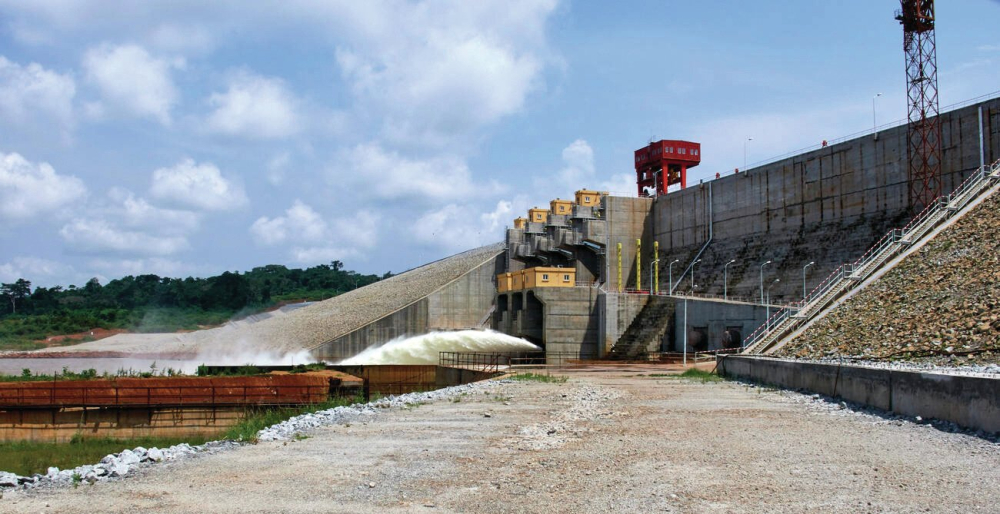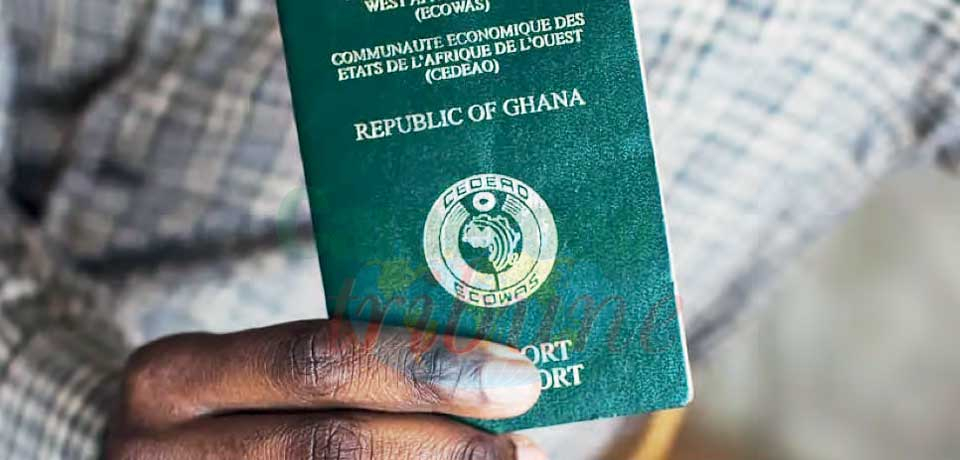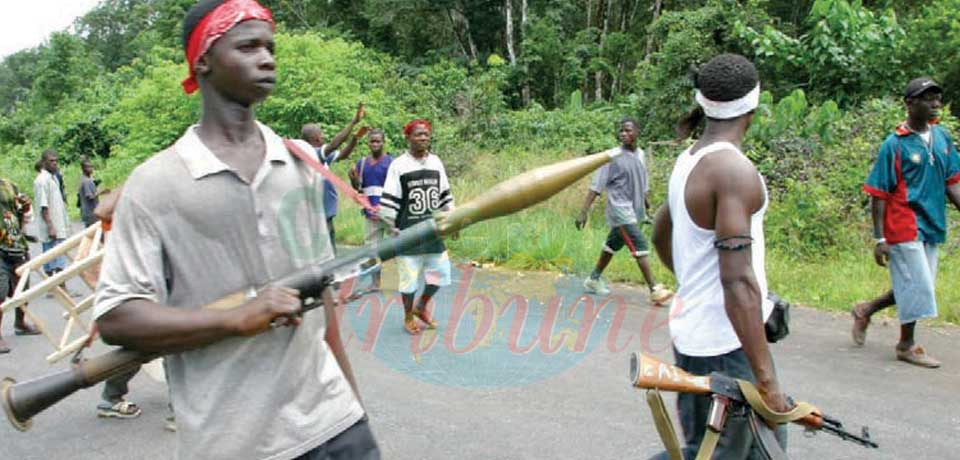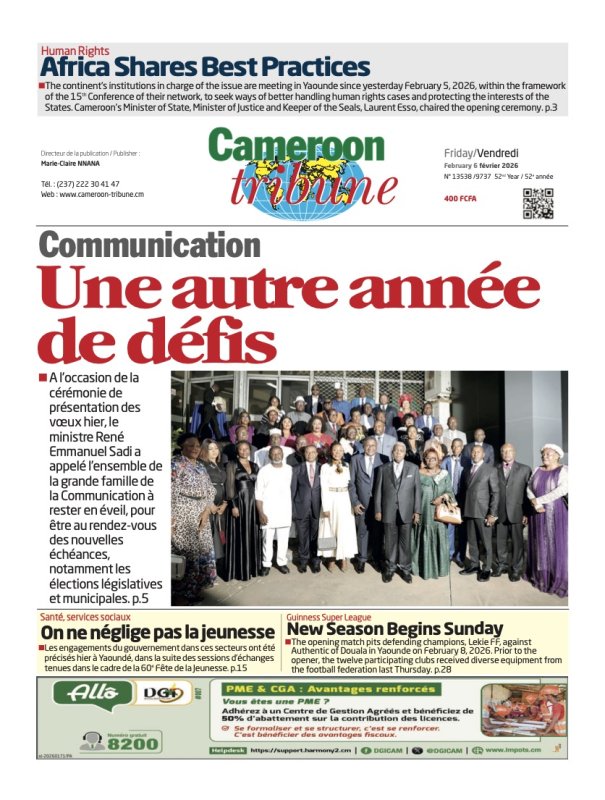Global Community of Shared Future? : This Resonates – So Very Well - With Our Roots!
- Par Kimeng Hilton
- 18 Oct 2023 10:32
- 0 Likes

A presentation at a symposium held in Yaounde on October 17, 2023 by the Chinese Embassy in Cameroon on the country’s whitepaper on a new world order. The whitepaper is entitled, “A Global Community of Shared Future: China’s Proposals and Actions.”
To my mind, we should be talking here about “a global community of a shared present” – first. Before moving on to “a global community of a shared future.” For, if we do not begin rehearsing today, we might not learn our “dance steps” well enough to perform in future. But I know China’s proposals here refer to both what should be done now, and in coming times! (This was just a joke to tickle your spirits!)
Anecdotal Presentation
Let me begin by saying my presentation will be conversational, though not interactive as I would have loved. It will comprise simple anecdotes from certain parts of Cameroon. And then a section to apply these anecdotes to our topic. In order to see how the anecdotes relate to what China has proposed to the world. Which is the object of our gathering here this day.
Very Much African!
The topic of China’s whitepaper is: “A Global Community of Shared Future: China’s Proposals and Actions.” Now, this is what I make of this whitepaper topic. It seems to suggest the Biblical teaching on “Being one another’s keeper.” And in some respects, what the African extended family system of good old days stood – and still stands for today. Again to my mind, all this comes down to one main thing: That our world would be a better place – to live – if we didn’t just mind our own business.
Being One Another’s Keeper
But we actually cared and ensured that others also shared in our endowments, blessings, progress, technology, experience, wealth, expertise, know-how…. In other words, if there is lack, then everyone lacks. But if there is something, a portion is shared out so that no one goes hungry. No one feels left out. Or abandoned to themselves.
What China Proposes
And so “China’s answer to this question of the times is to build a global community of shared future. It means that with their futures closely interlocked, all nations and countries should stick together, share weal and woe, live together in harmony, and engage in mutually beneficial cooperation. The idea is based on a reasonable design for state-to-state relations. It reflects the general consensus and common expectations of the international community, and demonstrates China’s sense of duty as a responsible major country.
“In this global village, all human beings are one big family. With their interests intertwined and futures interlocked, countries are turning into a community of shared future. Such a vision rises above the exclusive rules of bloc politics, the notion of might makes right, and the “universal values” defined by a handful of Western countries. It conforms to the trend of the times, echoes the call for global cooperation, and contributes to a more just and equitable international order.”
Our Traditional Community Way Of Life
Please, note that my allusion here is to a community. Or local community, so to speak. A little community where almost everyone knows and understands – to some extent – all other people in the locality. As well as their moments of joy and sadness. Or the occasions to join them in celebrating. And when and how to commiserate with them. And also when to lend a helping hand.
Replicating On Larger Scale
But how can “a practice” at a little community level be extrapolated to make sense or be replicated on a much larger level? Like a group of countries? A continent? And even the world at large? I believe workable, tested experiences can be replicated. No matter the level. Only if those trying to replicate them pay great attention to the context and other fine details. More so as our world - no matter the long physical distances separating some nations - is today interlocked in co-existential relationships that seem inseparable.
China’s “New World Order” Proposal
Before we forget our topic, how does China’s proposals for a new world order, which emphasizes “A Global Community of Shared Future,” connect with Cameroon? Or relate to the traditions, customs or the way of life in some traditional Cameroonian societies? All I will be trying to demonstrate here is that China’s proposals are well in line with what our societies have been practising – even for ages. Though on smaller scales. And thus, the proposals are welcome, acceptable and desirable to many Cameroonians. And I dare say, Africans. And why not the global community?
Inseparable Community Life
Let us begin with Bafut people in Mezam Division of Cameroon’s North West Region. They see life as inseparable from the community. According to them, life is not – and should never be – like living on an island. That is why during funerals, local young men readily volunteer their service to dig and fill up the grave after burial. In return, the bereaved family offers the grave diggers food, and drinks.
Here, there is no place for funeral homes to bill you for all aspects of obsequies. But families whose young men do not participate in burying other people are in trouble when they lose a member. They are either left on their own or fined by the community before helping them to bury their dead.
“Is It Fine With You?”
Also amongst Bafut people, it is common to check on each other – to find out how they are faring. While on their way to farm, Bafut women call out greetings as they pass by each home to find out if it is well with the inhabitants. If they don’t receive replies after a number of times, they must stop by and go into the home to ensure that it is well with the inhabitants.
“Bereavement Is Everyone’s Concern
The native Bakweri people in the South West Region are fairly “urbanized.” They are mainly resident in the town of Buea and its outlying villages. They are also in Limbe, the coastal city. Despite their early contact with Westerners, the Bakweri have not lost touch with their traditional way of life. And so it is common for Bakweri people to rush – uninvited - to the homes of community members if something appears to be amiss there. Just to assure themselves that all is well.
Inseparable Company-keeping
Similarly, if some community member has not been seen or heard from for some time, it is everyone’s responsibility to go and find out what is happening. Is the person sick? Did they travel unannounced…? Funeral is another opportunity for Bakweri to demonstrate their love and concern for one another.
Uninvited, villagers will throng bereaved homes everyday - before, during and after burials. Not only to commiserate, but to also help in the preparations. Days after internment, they still continue coming round to help to lessen the burden of loss on the family.
“Your Child, Everybody’s Child”
If a Bakweri community person falls sick, neighbours readily offer to assist them at home or in hospital. If a child is found misbehaving in the community, it behooves every member of the community who caught the child in the act to report them to the parents.
Not Only About Money!
On the other hand, Bazou and Bangangte people in Nde Division of Cameroon’s West Region are part of the large Bamileke ethnic group. That covers almost the whole region. Their “tontines” are veritable instruments of socialization. But moreover, avenues of helping each other. Though “tontines” are famous for their savings and thrift schemes, their main reason for bringing people together is not money. But rather the concern to share burdens and moments of joy together.
“Insurance Scheme”
Tontines have rules on what to do in the event of death, serious sickness, birth, promotion… amongst their members and their close relatives. Members sacrifice and make annual contributions whose proceeds serve as an “insurance scheme” to be used in the event of such a happening. As part of the spirit of sacrifice, tontine members would be ready to go the extra mile to assist. For example, a member who gets involved in a serious accident. Similarly, churches are not left. Clergymen organise the collection of gifts from members for distribution to the needy in society.
Community Labour, A Must
Amongst the Bamessing people in Ngoketunjia Division in the North West Region of Cameroon, community labour is organized to handle local problems. For example, if a neighbourhood road gets bad, residents do not wait for the King or Fon to take action. Rather, his representative or Quarter Head mobilizes the people with their tools to carry out the repairs.
All That For No Pay!
The Wimbum people of Donga-Mantung Division in the North West Region are rooted in their tradition of mutual solidarity. Bereavement is everyone’s concern – whether directly related to the family or not. Same as news of marriage. Family and community celebrations require no invitation. That is why dance groups and masquerades travel long distances – often on foot – to commiserate or celebrate with others. For no pay.
No Farm Work!
Everyone abandons their farm work during internment just to commiserate with a bereaved community member. And if it has to do with the “disappearance” or death of a King or Fon, people in the village concerned and neighbouring villages stay away from their farms for days. During such mourning, both the men and women do not cover their heads with caps and head scarves.
Their King, Our King Also
For example, the recent “disappearance” of the Fon of Mankon in Bamenda was mourned for several weeks after his official burial rites (which held long after the actual burial in secrecy). Large delegations from other tribes...
Cet article complet est réservé aux abonnés
Déjà abonné ? Identifiez-vous >
Accédez en illimité à Cameroon Tribune Digital à partir de 26250 FCFA
Je M'abonne1 minute suffit pour vous abonner à Cameroon Tribune Digital !
- Votre numéro spécial cameroon-tribune en version numérique
- Des encarts
- Des appels d'offres exclusives
- D'avant-première (accès 24h avant la publication)
- Des éditions consultables sur tous supports (smartphone, tablettes, PC)














Commentaires